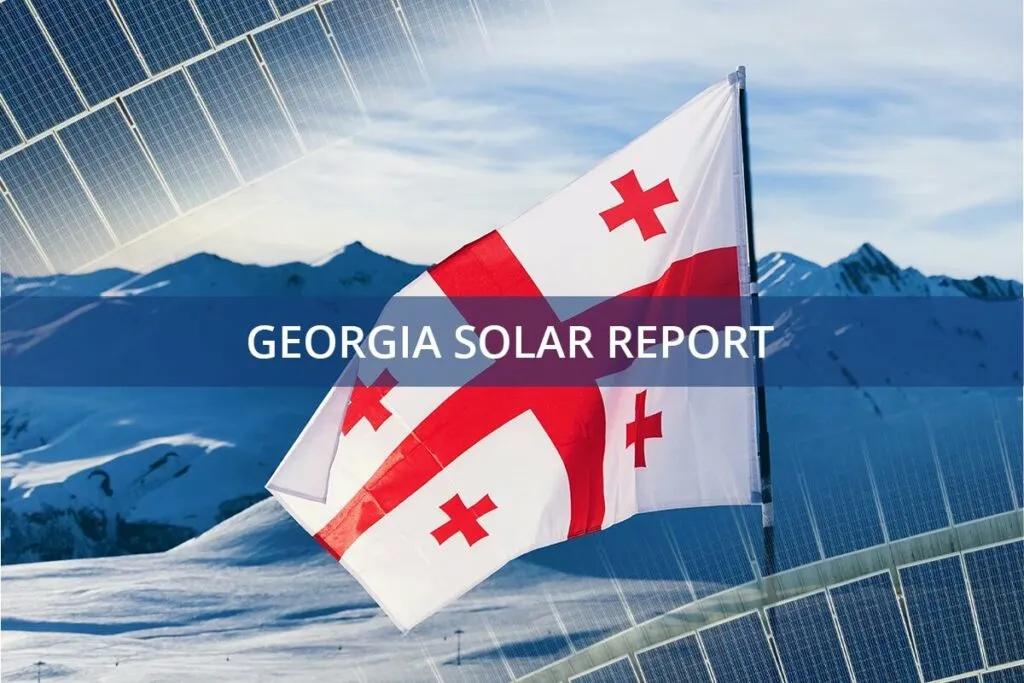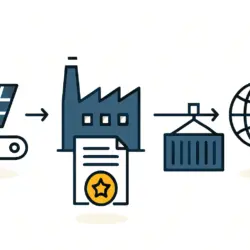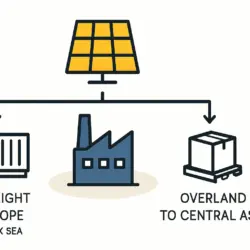Georgia Power’s newly approved 2025 energy plan excludes new solar infrastructure, marking a significant shift in the state’s renewable energy strategy. The plan, approved by the Georgia Public Service Commission (PSC), maintains a focus on fossil fuels and nuclear energy, despite growing concerns about climate change and the rising demand for clean energy sources.
Overview of the Georgia Power Energy Plan
Georgia Power’s plan calls for closing two coal-fired power plants by 2025 and adding 2,600 megawatts (MW) of natural gas-fired generation. The utility also aims to build out 2,000 MW of battery storage by 2030 to help store excess energy from its gas and nuclear plants. However, the plan omits any new solar or wind infrastructure—a major point of contention among environmental groups and clean energy advocates.
One of the most controversial aspects of the plan is the construction of a new 2,300 MW natural gas plant at Plant Wansley in Heard County. The plant, expected to cost $2.5 billion, has faced criticism from environmental groups for its reliance on fossil fuels and its potential impact on local communities. Georgia Power has defended the project, arguing that it is necessary to ensure grid reliability and meet the state’s growing energy demands.
PSC’s Decision on the Georgia Power Energy Plan
The PSC’s decision to approve the plan was not unanimous, with two commissioners voting against it.
Commissioner Lauren “Bubba” McDonald, a vocal critic of Georgia Power’s past energy plans, argued that the current proposal doesn’t do enough to promote renewable energy and reduce carbon emissions. He also expressed concern about the cost of the new natural gas plant and its impact on ratepayers.
Clean energy advocates have also criticized the plan for its lack of investment in solar and wind infrastructure.
They point out that Georgia has one of the fastest-growing solar industries in the country, and many believe the state should be doing more to support the development of renewable energy. The Southern Environmental Law Center (SELC), for example, has argued that Georgia Power’s plan is a missed opportunity to invest in clean energy and reduce the state’s reliance on fossil fuels.
The Outlook for Solar Energy in Georgia
Despite the lack of new solar infrastructure in Georgia Power’s plan, there is still hope for the future of renewable energy in the state. The PSC has ordered the utility to study the potential for additional solar and wind projects, which could lead to new investments in the coming years. The commission also directed Georgia Power to continue its work on battery storage projects, which will be crucial for integrating more renewables into the grid.
The decision to exclude new solar infrastructure from the energy plan is a setback for clean energy in Georgia, but it is not the end of the story. The state’s growing solar industry and increasing demand for renewables will likely push Georgia Power to invest in more clean energy projects in the future. In the meantime, environmental groups and clean energy advocates will continue to push for more ambitious plans that prioritize renewable energy and reduce carbon emissions.
For instance, Qcells recently received a $1.45 billion loan from the U.S. Department of Energy to expand its solar plant in Georgia—a move set to boost solar manufacturing and create jobs in the region. You can read more about this development here.
Georgia Power’s 2025 energy plan may not include new solar infrastructure, but the fight for clean energy in Georgia is far from over. With continued advocacy and investment, the state can still become a leader in the transition to a clean energy future.




Didn’t see much about their nuclear energy ambitions. How long do they anticipate a nuclear power plant to be up and running?